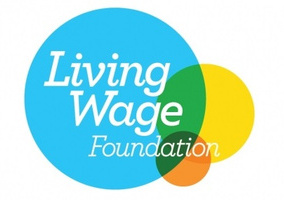Charities and non-governmental organisations (NGOs) are among the worst industries when it comes to offering an attractive employee benefits package, according to new research.
The Employee Benefits Index gave the non-profit and NGO sector an index score of 85 out of 2,000, making it one of the industries offering the fewest additional perks to prospective employees.
Equity management company Vestd said in its report that while charities focus on “delivering the best value for the causes they support”, they are at risk of missing out on top talent because of their employee benefits offering.
Earlier this month, Civil Society’s sister publication Charity Finance looked at non-monetary incentives and what some charities including Youth Employment UK and Breaking Barriers have done to be attractive employers.
Cycle to work schemes most common
Vestd looked at 20 common benefits found in job descriptions on search engine Indeed and filtered the results by industry (25 in total).
It then divided the resulting number of jobs by the total number of jobs in the UK on Indeed, which gave the percentage of jobs in each sector featuring a specific benefit.
To create an overall ranking, Vestd gave each industry a weighted score out of 100 – based on that percentage of jobs – and added up the scores to give a score out of 2,000.
The higher the score, the better the benefits packages offered in that industry.
Vestd analysed over 16,029 job descriptions listed by charities and NGOs and gave the sector a score of 85 out of 2,000.
At 7.9%, cycle to work schemes were the most commonly offered benefit in the industry, followed by free or on-site parking (5.7%) and employee discounts (4.7%).
Conversely, health and wellbeing programmes and profit sharing were the least commonly offered benefits (0.01%), followed by company share schemes (0.03%) and private dental insurance (0.26%).
‘Employees are now on the lookout for tangible benefits’
Ifty Nasir, founder and CEO of Vestd, said: “Given the cost-of-living crisis, employees are now on the lookout for tangible benefits that offer a true reward for their hard work or help them to achieve their day-to-day duties in the role.
“Employees are much more inclined to buy into the ethos of the company if they’re given shares as part of their compensation package.”
However, speaking to Charity Finance recently, BDO partner David Ellis said pay-related benefits such as a better pension, private medical cover and gym membership are “all good things” but do not necessarily keep people in an organisation for longer.
“I don’t think they have that effect,” he said.
“There’s either a hygiene factor as in: ‘I should have this, shouldn’t I? That’s the lowest standard I should be getting’ or employees struggle to value them because they can’t see them in the same way they see pay.
“Employers have always struggled to get employees to value pensions because you can’t spend them today.
“Ultimately, base pay is important and benefits are hygiene factors because people know that they’re important things for them to have. But it’s those other things, the bits related to career, environment and culture, that actually make the difference.”













